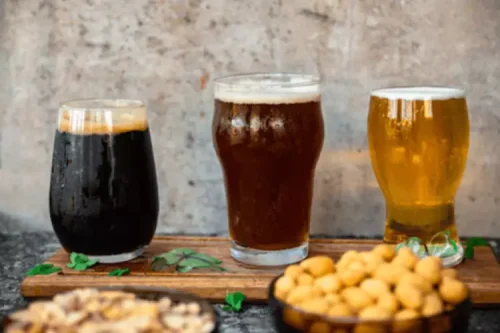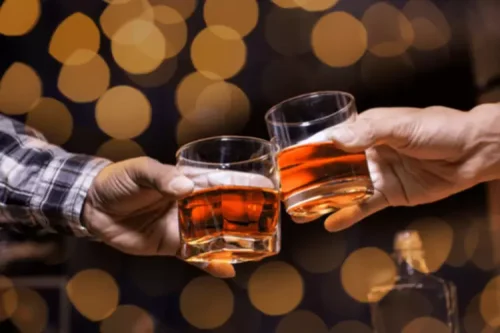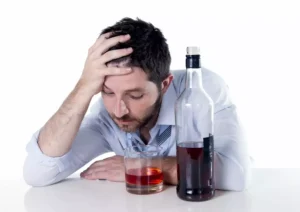
This can lead to moments just as fun as what’s depicted in those alcohol advertisements. But just as frequently things can become sloppy, or take a detrimental toll over time. If you are sober-curious and looking for a starting point, talk with your primary care provider. We can help you create an effective, sustainable plan to put you in control of your relationship with alcohol. Talking with friends about your decision to drink less can help you stay accountable to your goal. Set up a Dry January challenge with friends or join a social media group to get built-in support.
Take some time to explore your relationship with alcohol

You may not need to completely reinvent your life to quit drinking, but making a few changes in your surroundings to help avoid alcohol triggers can make a big difference. Say you don’t have any cravings when you go without drinking. All the same, “a quick drink” often turns into three or four drinks. When you’re having a good time, you find it hard to stop, especially in the company of friends having the same amount. To stop drinking alcohol, you first need to understand your relationship with drinking. From there, you may need social support, consistent self-care, and new routines that can help redirect your mind.
What Happens to Your Body When You Quit Alcohol for a Month?
“I’m naturally a positive person, someone who always tries to find the silver lining in any situation,” he said as he shared how he psyched himself up while undergoing treatment. If the rugrats couldn’t find what they needed for their games, then guess what? Mommy was 46 years old and had a hard week and there was no way she was digging through mountains of smelly kid detritus to find some lost shoe. Of course, we all want a simple, achievable number for how long we should abstain from alcohol in order for our bodies to fully heal from its effects. Another thing that will help your liver’s journey in recovery is good nutrition. There’s no miracle diet by any means, but the Mediterranean diet, for example, can help fill some of the nutritional gaps you may have due to alcohol use.
How to Actually Quit Drinking, for Now or Forever
No matter your situation, Dr. Das emphasizes the power of enlisting help as you embark on a life sans booze. Replacing an alcoholic drink with a non-alcoholic drink that is “special” can be a big help when quitting booze, Shapiro notes. Quitting can still be tough (if it weren’t, drying out for a month wouldn’t be offered up as a challenge).

Health Categories to Explore
So if you were drinking enough to mess with these processes, your metabolism could start to work more efficiently within a few weeks of going sober. But alcohol can contain a lot of unexpected calories—some how to take a break from drinking drinks more than others. For instance, a beer can have about 150 calories, a glass of pinot noir would have about 120 calories, and a frozen pina colada can have about 245 calories.

Another 2017 brain study published in PLOS One found that two to three weeks of alcohol detox can boost your working memory.6 This type of memory helps you temporarily retain important information, like a digital code or phone number. Alcohol is a sedative, so you’d think it would help you sleep better. While drinking could help you fall asleep, it suppresses REM sleep, the restorative part of your sleep cycle, Dr. Leavey says.
Dry January: The health benefits of going 31 days without alcohol
It’s also a good way to communicate to your friends your choice to quit drinking, so they can better support you. Before your planned break from alcohol, spend a week or two monitoring the amount you drink and when. “When we work through and tap into each component, break down the drives and processes, we can make choices that support our priorities (like hanging out with friends) without feeding the habit (polishing off a bottle of wine).” In the episode, where Kim chose to drink non-alcoholic beer, he admitted that it was not always easy for him to keep a positive outlook following the diagnosis.
Your Health
It might also be worth checking out a 12-step program in your area, like Alcoholics Anonymous or SMART Recovery, to see if it feels like something that might be useful for you. Quitting alcohol alone is harder for some than others, but there’s no need to go it alone. Feeling at your best physically can boost resilience and emotional strength, equipping you to weather challenges that trigger the desire to drink. Finding or reaching out to other sober people can also help. Brigid Clancy works as a contractor to a private alcohol and other drug consultancy.
Just note that you might overdo it if you start drinking again.
Her work has appeared in over 50 publications, including The Washington Post, O! She is a new resident of Denver, where she lives with her husband, spunky toddler, and their fur babies. You can find more of her work on her portfolio site or by following her on Instagram. “It is also important to notice what happens to your emotions when you stop alcohol use.
Food Is Medicine research hits home, helps patients improve long-term health
- Drinking within the low risk drinking guidelines and having several drink-free days each week can help keep health risks from the effects of alcohol low.
- In particular, she’s committed to helping decrease stigma around mental health issues.
- A recipe teaches us how to consume something, not just how to fix it.
- “Most of the dermatological conditions that are worsened by heavy drinking will slowly normalize over time after cutting out alcohol,” Dr. Genebriera says.
Drinking increases fatigue and decreases energy – it puts the body in recovery mode, fighting inflammation and repairing cell damage. When you take a break from https://ecosoberhouse.com/ alcohol consumption, your body can use that energy to enjoy more healthy activities. “The findings of these studies are actually very surprising,” White says.


Leave a Reply